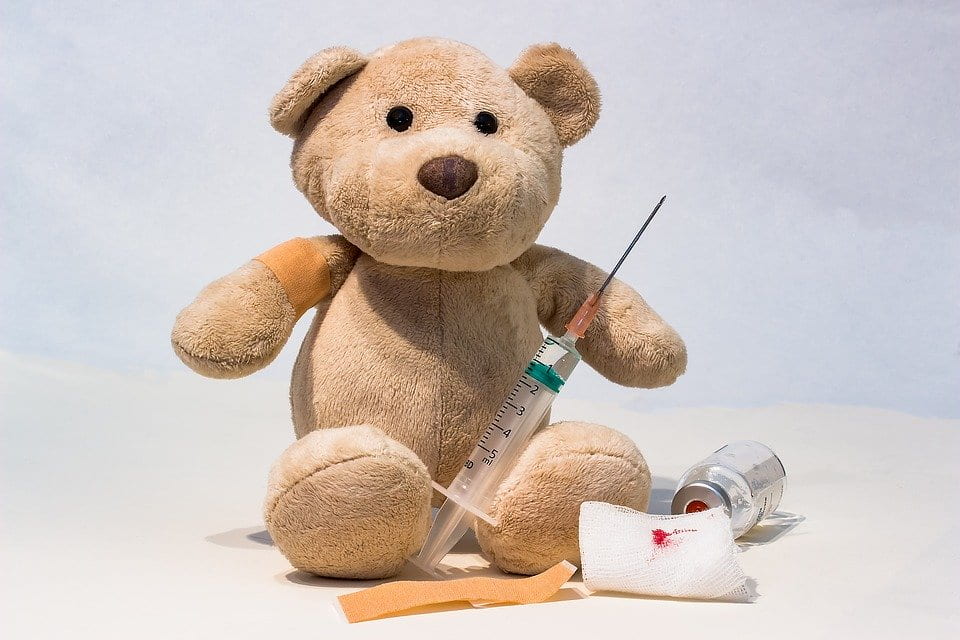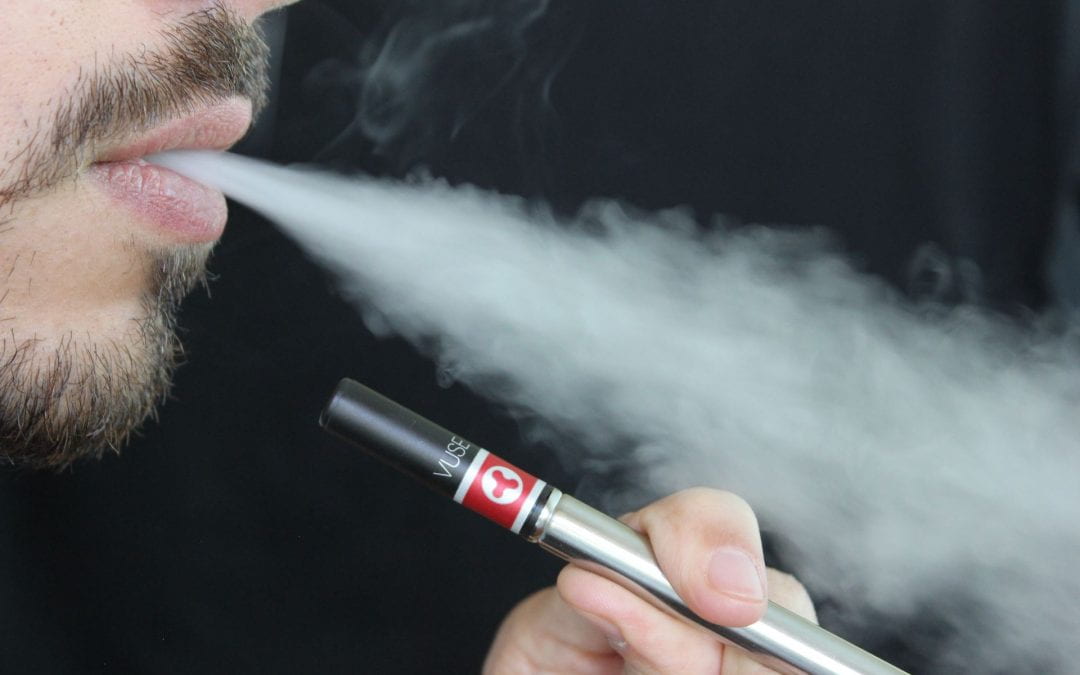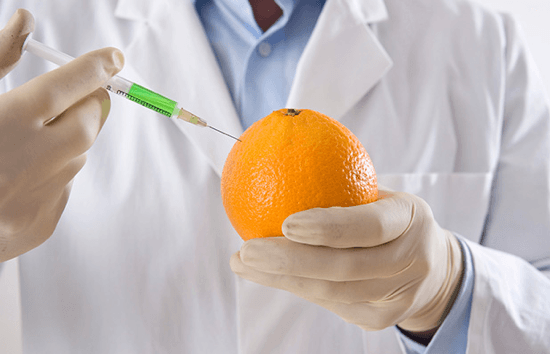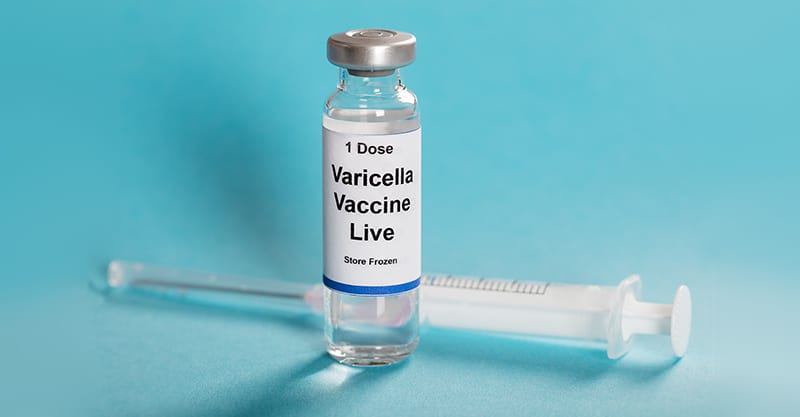JOURNAL OF HEALTH & BIOMEDICAL LAW BLOG
JHBL frequently posts blogs submitted by journal staff members and editors concerning a variety of topics relevant to the health law community. To read a blog, click on the blog titles below. For more information, or to submit a blog post for consideration, please contact our Online Editor: Hannah Bilton (Hannah.bilton@su.suffolk.edu).


Avoiding Accountability: The Insulation of Pharmaceutical Companies from Criminal Liability
By Annastasia Morairty
Fraud, misconduct, and illegal activity are well-known aspects of pharmaceutical companies’ business practices. Unlike other large industries, while business practices may be potentially unethical, but not illegal, those in the pharmaceutical industry routinely and flagrantly engage in illegal activity without facing any deterrent consequences. The Food and Drug Administration (FDA) and the False Claims Act (FCA) deem pharmaceutical companies criminally and civilly liable for engaging in conduct including, but not limited to, misbranding and mislabeling products, promoting products for off-label or non-FDA approved uses, misrepresenting or adulterating data and clinical trial results, and failing to disclose or adequately warn consumers of potential risks and side effects. Continue Reading Avoiding Accountability: The Insulation of Pharmaceutical Companies from Criminal Liability

Connecticut Students Sue to Stop Transgender Athletes from Competing in High School Track Meets: An Analysis of Transgender Rights Under Title IX
By Christin Flynn Lal
Exclusionary policies for transgender student-athletes’ participation in school sports pose a severe health risk to a vulnerable population and states have an obligation to protect the health and safety of all students by enacting non-discriminating statutes. A recently filed federal lawsuit in Connecticut challenges the state’s inclusionary policies for interscholastic sports, pitting the statutory rights of transgender students to participate against the calls of unfairness and violations of Title IX. Continue Reading Connecticut Students Sue to Stop Transgender Athletes from Competing in High School Track Meets: An Analysis of Transgender Rights Under Title IX

Finland’s Fight for Families: The Prime Minister’s Gender-Neutral Solution to Parental Leave
By Bridget Moran
Finland’s prime minister recently announced a new policy for family leave – seven months to each parent. The policy is designed to be gender-neutral and reflective of “today’s concept of family.” It is part of Finland’s effort to promote gender equality and address the country’s declining birth rate. The reform brings Finland in line with Sweden, Norway, Iceland, Estonia, and Portugal in having the world’s most generous family-leave policies. A look at Finland’s history and culture highlights how it is able to achieve such radical reform. Continue Reading Finland’s Fight for Families: The Prime Minister’s Gender-Neutral Solution to Parental Leave

Refusing to Negotiate: Why Surprise Medical Bills May be Unenforceable
By Asher McGuffin
A growing number of patients receive surprise medical bills that can be as much as 40 times normal rates. This happens when healthcare providers, often working at in-network hospitals, hide their out-of-network status from patients. Although everyone has traditionally assumed surprise bills were legally enforceable, several courts have recently ruled against surprise bills. Continue Reading Refusing to Negotiate: Why Surprise Medical Bills May be Unenforceable

Mother Knows Best?: How the Texas Advance Directives Act Complicates the Relationship between Patients, Caregivers, and Hospitals
By Devin McDonough
A Texas court recently decided a baby girl in a Texas children’s hospital could be taken off life support pursuant to a decision of the hospital’s ethics committee. Per the “10-day rule”, a hospital can cease life-sustaining treatment if within 10 days another hospital is unavailable to care for the patient or a court does not extend the time. A rule of this magnitude is essentially presented with no procedural safeguards, much to the detriment of patients and their families. Continue Reading Mother Knows Best?: How the Texas Advance Directives Act Complicates the Relationship between Patients, Caregivers, and Hospitals

A Simple Solution to Make Flu Vaccinations More Accessible to Children
By Thomas J. Mehlich
Expanding children’s access to vaccines at pharmacies is one way state governments can help limit influenza outbreaks. Continue Reading A Simple Solution to Make Flu Vaccinations More Accessible to Children

What are the Criminal Standards for Improper Prescribing and Uttering a False Prescription in Massachusetts? The SJC Offers Clarification for Healthcare Professionals and Prosecutors
By Michael R. Mancinelli
A new Supreme Judicial Court ruling issued this week in Commonwealth v. Stirlacci offers a cautionary tale for solo-practitioners in Massachusetts while establishing new criminal standards for improper prescribing and uttering a false prescription. Continue Reading What are the Criminal Standards for Improper Prescribing and Uttering a False Prescription in Massachusetts? The SJC Offers Clarification for Healthcare Professionals and Prosecutors

Supervised Injection Sites – Legally Allowing the Use of Illegal Drugs?
By Sarah Marshall
A District Court judge recently ruled that an organization’s plan to open a supervised injection site where people can use illegal opioids under medical supervision does not violate federal drug laws. Endorsed by the American Medical Association, these sites hope to help combat fatal drug overdoses, but Prosecutors across the country are divided in their support, or lack thereof, for the program. Continue Reading Supervised Injection Sites – Legally Allowing the Use of Illegal Drugs?

IS THIS THE END OF VAPING? A BRIEF HISTORY OF VAPING AND HOW STATES CAN RESTRICT THE FREE MARKET THROUGH EMERGENCY LEGISLATION
As public officials grapple with how to handle the public health risks associated with the proliferation of vape products and e-cigarettes, it is important to examine the government’s authority to regulate during public health emergencies. Continue Reading IS THIS THE END OF VAPING? A BRIEF HISTORY OF VAPING AND HOW STATES CAN RESTRICT THE FREE MARKET THROUGH EMERGENCY LEGISLATION

PRESCRIPTION FOR END OF LIFE CHOICE: PHYSICIAN-ASSISTED DEATH WITH DIGNITY
By Kane Levings
Don’t we all want to die with dignity? Not legalizing physician-assisted death takes away the ability for a terminally ill person to choose when and how they die. To avoid insufferable pain and a short life expectancy, physician-assisted death has helped many people take back control of their life. Continue Reading PRESCRIPTION FOR END OF LIFE CHOICE: PHYSICIAN-ASSISTED DEATH WITH DIGNITY

Roadblocks on the Road to Recovery in Massachusetts: Informing “Section 35” Petitioners for Involuntary Commitment About the Differences Between Treatment Facilities for Alcohol and Substance Abuse Disorder
In Massachusetts, family members, police officers and certain medical professionals can petition a court for the involuntary civil commitment and forced treatment of individuals suffering from substance or alcohol use disorder. But the state has not done enough to clearly inform petitioners about how not all Section 35 Treatment Facilities are the same and how men and women are not treated equally under the law.
Continue Reading Roadblocks on the Road to Recovery in Massachusetts: Informing “Section 35” Petitioners for Involuntary Commitment About the Differences Between Treatment Facilities for Alcohol and Substance Abuse Disorder

The Grass is Always Greener: Would Imported Drugs Solve America’s Healthcare Crisis?
By Patrick Klosek
As healthcare costs continue to rise, politicians have begun to consider the merits of importing low-cost pharmaceuticals from Canada. While this may provide a quick fix for many struggling Americans, it is time to consider making more ambitious changes to the country’s healthcare system as a whole. Continue Reading The Grass is Always Greener: Would Imported Drugs Solve America’s Healthcare Crisis?

We Reward Abusers by Silencing Their Victims
By Kristin Kelley
October is National Domestic Violence Awareness Month and with this, we have taken steps forward to no longer silence victims of domestic violence. Yet addressing the misconceptions surrounding domestic violence may be the key to more victims coming forward and receiving help and more loved ones recognizing the signs. Continue Reading We Reward Abusers by Silencing Their Victims

Burning Up: A Look at the Constitutional Rights of Medical Marijuana Patients Under Fire
By Justin F. Kissell
As states move to legalize medical marijuana, federal law prevents medical marijuana patients from buying or possessing firearms. This conflict infringes on the fundamental right to bear arms.
Continue Reading Burning Up: A Look at the Constitutional Rights of Medical Marijuana Patients Under Fire

Could We Be Any More Cramped? New Seat Designs Could Impact Travelers’ Health
By Sonya Sondhi
In recent years, air travelers have seen seats get progressively smaller and increasingly uncomfortable. A new seat design shown at the Paris Air Show has pushed the envelope once again, taking the definition of personal space to new heights. Continue Reading Could We Be Any More Cramped? New Seat Designs Could Impact Travelers’ Health

Conflicting Injunctions from U.S. Courts Threaten Women’s Access to Reproductive Healthcare
By Abigail Bird
As the Trump administration refuses to comply with an injunction barring enforcement of expanded religious exemptions for the Affordable Care Act’s contraceptive coverage mandate, the reproductive rights of women hang in the balance. Continue Reading Conflicting Injunctions from U.S. Courts Threaten Women’s Access to Reproductive Healthcare

Public Nuisance Law: One Solution to the Opioid Epidemic
By Danielle Barney
The opioid epidemic is one of the greatest public health concerns facing the United States today. A recent decision from the District Court of Cleveland County in Oklahoma utilized public nuisance law to hold pharmaceutical companies responsible for their role in the state’s opioid epidemic. Continue Reading Public Nuisance Law: One Solution to the Opioid Epidemic

Echoes from the Reagan Administration: Trump’s Title X Program Forces Planned Parenthood to Withdraw with Change in Regulations
Planned Parenthood has recently made headlines over their refusal to abide by the Trump Administrations conditions on the federal grant program known as Title X – whereby pulling out of the program and losing millions of dollars in federal funds as a result. Title X is a grant program originally enacted by the Nixon Administration in an effort to provide low income people with family planning services. Trump’s new requirements for continued funds to forbid family planning providers from referring patients to abortion providers. Continue Reading Echoes from the Reagan Administration: Trump’s Title X Program Forces Planned Parenthood to Withdraw with Change in Regulations

Your Privileged Past Gets You a Pass
By Kristin Kelley
A New Jersey Judge faces criticism for remarks he made about the alleged rape of a 16-year-old girl. The comments reflect the ongoing battle survivors face everyday when seeking accountability for their perpetrators. However, the type of victim-shaming took a shift, praising the perpetrator all while doubting the survivor. Continue Reading Your Privileged Past Gets You a Pass

The War on Women: Where Do You Stand?
By Kristin Kelley
Recently, states have passed bills that challenge the prior Supreme Court ruling of Roe v. Wade. Parts of the world have declared these bills as the war on women and women all over are fighting back. The argument has always been in talks but with states passing bills, it is important as ever to force the discussion. Continue Reading The War on Women: Where Do You Stand?

Ban on Unvaccinated Children: One New York County’s Uphill Battle Against the Measles
By Meagan King
The measles outbreak has taken a toll on several families and counties across the country. While people await a solution, here is how one county took the issue into their own hands. Continue Reading Ban on Unvaccinated Children: One New York County’s Uphill Battle Against the Measles

Creating Smart, Safe, and Efficient Computerized Cars: The Host of Technological Concerns with Implementing Self-Driving Cars
By George Barclay
Last week, this blog addressed some of the legal concerns that self-driving cars are likely to produce in the field of tort law. Besides issues such as negligence and liability, the implementation of self-driving cars also presents come compelling technological questions. Continue Reading Creating Smart, Safe, and Efficient Computerized Cars: The Host of Technological Concerns with Implementing Self-Driving Cars

Ignorance is Bliss: The CDC Says It’s Best to Keep Patients in the Dark About “Superbug” Outbreaks
By Lindsey Cavallaro
The Center for Disease Control has recently released a comprehensive report on a “superbug” which was contracted by several American tourists at a Mexican hospital in Tijuana. The report has sparked a controversial conversation about antibiotic-resistant “superbugs” in the United States, and whether or not the CDC should be required to disclose infection site information, such as hospital and other medical facility names, to the public. Continue Reading Ignorance is Bliss: The CDC Says It’s Best to Keep Patients in the Dark About “Superbug” Outbreaks

Are We Running a Tab on Sexual Assault Survivors?
By Kristin Kelley
After a sexual assault, many survivors are left with unanswered questions, no conviction of their perpetrator, and bills piled up. States have restrictions on when they can assist survivors of these assaults, and if they do not fit the restrictions, survivors are expected to pay up. Continue Reading Are We Running a Tab on Sexual Assault Survivors?

Liability Questions on Self-Driving Motor Vehicles Are A Matter of Health Policy
By Kyle Lyman
Self-driving automobiles are a new technology that ride sharing companies and consumers will soon be utilizing. Some believe this technology will eliminate human error, which can be more common in our busy, distracted lives. The risk, though, is whether or not this technology will take safe avoidance measures when facing imminent collision. How does the technology determine who or what to hit when faced with a choice? Will the technology understand and adapt to human movement? When such risks are a part of the equation, the promotion of economic development and innovation must be balanced with health and liability considerations . . . . Continue Reading Liability Questions on Self-Driving Motor Vehicles Are A Matter of Health Policy

Preparing for 2020: Framing the healthcare issues that will shape the next presidential election
By Michael R. Mancinelli
An objective look at the healthcare policy issues that will guide candidates during the 2020 presidential primaries. Continue Reading Preparing for 2020: Framing the healthcare issues that will shape the next presidential election

Smartphones: The Price Our Health is Paying for Having Technology at our Fingertips
By Michael Lozzi
Since Steve Jobs’ announcement and subsequent release of the iPhone in the summer of 2007, smartphone technology has evolved immensely. Smartphones have revolutionized the world in which we live in and become an integral part of society as a whole. Unbeknownst to many, these technological capabilities and progressions also come with unsuspecting dangers like long-term eye damage from over exposure to blue light emissions from smartphones and spinal damage from staring down at devices’ multiple hours per day with poor posture. Greater public awareness and change around smartphones is needed to protect our health. Continue Reading Smartphones: The Price Our Health is Paying for Having Technology at our Fingertips

F.D.A. Recommending a Popular Club Drug to Treat Depression?
By Caitlin Izzo
F.D.A. discussed approving the first new treatment for depression in many years with a popular club drug used in the 1980’s and 1990’s. A new drug developed by Johnson & Johnson, called Esketamine, will deliver active ingredients of Ketamine in a nasal spray format. Continue Reading F.D.A. Recommending a Popular Club Drug to Treat Depression?

Is There Really Anything Natural About Natural Flavors?
By Christine Saad
American consumers are surrounded by the terms “natural” and “natural flavors” on the ingredient lists of the majority of processed foods. Many consumers are unaware of what mixture of chemicals are used to create the addicting and tasty foods they love. Alarmingly, representations on product labels are often the only source of information consumers can use to make decisions concerning whether to buy and use such products. Continue Reading Is There Really Anything Natural About Natural Flavors?

Beauty, But At What Cost? An evaluation of the lack of regulation given to the FDA over the cosmetic industry
By Hadley Duncan
With the average teenager using up to fourteen cosmetic products a day, it is no surprise that the cosmetic industry is thriving and is a over $80 billion-a-year industry. At what price to consumers has this growth occurred? With the FDA having limited to no regulatory control over the cosmetic industry, consumers face a high potential of experiencing adverse effects from these products. Consumers are outcrying for more regulations, so the FDA has proposed a consumer survey. . . but will this solve the issue at hand or just delay it? Continue Reading Beauty, But At What Cost? An evaluation of the lack of regulation given to the FDA over the cosmetic industry

Are you learning about mental illness through Netflix? If so, stop.
By Kaila DeFalco
Netflix has been a substantial contributor to creating controversy on the topic of mental illness. Netflix viewers are “learning” about mental illness through shows streaming through the main media-service provider; however, Netflix is not properly teaching its viewers about mental illness. Continue Reading Are you learning about mental illness through Netflix? If so, stop.

Carter SJC Ruling May Make Suicide Discussions More Criminal than Anticipated
By Chris Toohey
The Massachusetts SJC affirmed the trial court’s conviction of Michelle Carter for involuntary manslaughter of her then-boyfriend Conrad Roy, who committed suicide in his car. While the SJC’s prior decision to uphold the original indictment had already confirmed that a person can legally cause the suicide of another, the Court’s decision now sets precedent as to what language and basis of knowledge can satisfy the elements necessary to achieve a conviction. Continue Reading Carter SJC Ruling May Make Suicide Discussions More Criminal than Anticipated

Cleaning Products: Could They Harm Women’s Lungs as Much as Smoking A Pack of Cigarettes A Day?
By Katherine McMahon
According to a new study performed by European researchers, women who regularly use chemical cleaning products may suffer from the same lung damage as individuals who smoke a pack of cigarettes a day for ten to twenty years… Continue Reading Cleaning Products: Could They Harm Women’s Lungs as Much as Smoking A Pack of Cigarettes A Day?

Pressure Injuries Are Giving Health Care Facilities a Run for their Money if Preventative Action Is NOT Taken
By Allison Clemmey
Pressure injuries are the fourth leading preventable error in hospitals, rehab hospitals, and post-acute facilities throughout the United States. Patients and family members of patients developing pressure injuries have turned to the law to both compensate and punish health care facilities for not taking precautionary efforts to prevent and treat these injuries. Continue Reading Pressure Injuries Are Giving Health Care Facilities a Run for their Money if Preventative Action Is NOT Taken

Sure “Big Produce” Won’t Like It, But in Today’s World, Maybe We Should Take Another Look at Small-Scale Subsistence Farming
By Luidgi Andou
In 2005, Hurricane Wilma hit South Florida and left $18.6 billion of damage in its wake.[19] I was there, in Broward County South Florida during Hurricane Wilma. I was there with my family without electricity for about three weeks.[20] I was a child and largely ignorant to much of the world’s problems. Later as an adult, I learned what desperate things people not far from me had to do to find food. Fortunately for me I experienced and knew none of it at the time. To me, that three weeks was magical. My family was prepared individually, and my neighborhood responded as a community. Continue Reading Sure “Big Produce” Won’t Like It, But in Today’s World, Maybe We Should Take Another Look at Small-Scale Subsistence Farming

Is This New Law “BOLD” Enough To Make A Difference In The Fight Against Alzheimer’s?
By Christina Swider
On December 31, 2018, the Building Our Largest Dementia (“BOLD”) Infrastructure for Alzheimer’s Act was signed into law. The law focuses on promoting public health by combatting Alzheimer’s disease. Continue Reading Is This New Law “BOLD” Enough To Make A Difference In The Fight Against Alzheimer’s?

When Should Medical Malpractice Be Criminally Culpable?
By Kelly Bae
Currently, medical error is the third leading cause of death in the United States. Although medical malpractice cases are far more common in a form of civil suits rather than criminal prosecution, there has been a rise of criminal medical malpractice cases in the recent years. Drawing a clear line between civil and criminal negligence of health care providers is tricky but crucial. Would imposing a lower bar for criminal culpability possibly avoid the increasing number of deaths caused by medical errors? Continue Reading When Should Medical Malpractice Be Criminally Culpable?

Politics and Drug Pricing: How the Currently-Democratic House Could Affect the Pharmaceutical Industry
By Radhika Akhil
The debate surrounding high drug prices has gained a much more intense spotlight in recent times, especially given its obvious connection with maintaining public health. Academics, policy-makers, and others heavily entrenched in the pharmaceutical industry attest to various practices, market trends and other precedent that have allowed such an unchecked increase in drug prices. The recent Democratic control of the House poses new challenges in attaining a balance between regulating drug pricing without disincentivizing research and development. Continue Reading Politics and Drug Pricing: How the Currently-Democratic House Could Affect the Pharmaceutical Industry

Chickenpox, the Vaccine and the Outbreak?
By Bridget Reardon
Disproven theories of vaccinations causing Autism has led many people to opt out of vaccinating their children in recent years, despite every state having a mandatory vaccination law. In some states with high rates of religious or philosophical exemptions, small outbreaks of the Chickenpox has become the norm. One North Carolina county, that has had numerous outbreaks in recent years experienced the largest chickenpox outbreak in decades due to their high religious exemption rates. Continue Reading Chickenpox, the Vaccine and the Outbreak?

FDA Balances Regulations and Cigarette Alternatives
By John MacIsaac
The FDA weighs the pros and cons of limiting access to e-cigarettes to curb teen use, while keeping regulations loose enough to have adults use them when trying to kick a smoking habit. Continue Reading FDA Balances Regulations and Cigarette Alternatives

The Russian Doping Scandal: Why World Anti-Doping Agency Needs to Separate from the International Olympics Committee
By Tyler P. Henseler
The most egregious instance of cheating in sports ever discovered led to Russia’s recent ban from international competitions. Even more recently, Russia’s reinstatement into Olympic competitions by the World Anti-Doping Agency (“WADA”), leaves many countries and top, clean athletes questioning the WADA’s punitive power and allegiances. Continue Reading The Russian Doping Scandal: Why World Anti-Doping Agency Needs to Separate from the International Olympics Committee

HIPAA Compliance, Is Apple Compliant, or Are They Avoiding Their Ethical Responsibilities?
By Morgan E. Doiron
While Apple has been at the forefront of many technological innovations its latest endeavors into the healthcare market are cause for concern. With Apples announcement of updates to its Health application that will allow users to access their medical records directly from their mobile devices, we must wonder if Apple is treading on ethical thin ice. Continue Reading HIPAA Compliance, Is Apple Compliant, or Are They Avoiding Their Ethical Responsibilities?

Beware of Another “Oxy”: Are Sunscreens Helping or Harming Our Skin?
By Ashlyn Dowd
After the Hawaiian legislature signed a bill banning chemical based sunscreens, the media was in an uproar about the potential effects of these chemicals on human skin. The Environmental Working Group published articles expressing the harmful effects of sunscreen, while scientists continue to defend the chemicals and emphasize the need to protect ourselves from the sun. More tests are needed to balance the need to protect our skin from the sun’s harmful rays and prevent potential long-term effects from chemicals absorbed into the skin. Continue Reading Beware of Another “Oxy”: Are Sunscreens Helping or Harming Our Skin?

Urging the USDA to Incorporate Plant-based Diets into the 2020-2025 Dietary Guidelines
By Giuliana D’Esopo
The USDA has an obligation to protect consumers by promoting diets that will increase health and decrease risks of various health problems. It should recognize the health benefits of exclusively plant-based diets by incorporating them into the 2020-2025 Dietary Guidelines. Continue Reading Urging the USDA to Incorporate Plant-based Diets into the 2020-2025 Dietary Guidelines
